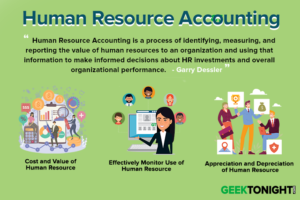What is Performance Monitoring?
Performance monitoring may be defined as the process of appraising an environment of continuous learning and development. It will be done by maintaining the employee’s performance, enhancing individual competencies to make them more productive for the organization.
Successful business management requires the ongoing monitoring of performance in order to generate data by which to judge the success or otherwise of specific strategies. The improvement in performance can only be realistically achieved when management is properly informed about current performance and to this end it is important to identify key performance indicators (KPIs) that will enable management to monitor progress.
Table of Content
According to American Compensation Association (1996), it is important to develop performance management on the basis of ‘open, honest, positive, two-way communication between supervisors and employees throughout the period’.
In order to explain this from the viewpoint of performance, this means instant feedback to individuals and teams on the things they have done well or not so well. In any organization, if people can be provided with the information they need to monitor their own performance, so much the better.
It is a fact that this data is not available readily; they can be encouraged to seek it. The main aim behind this is to provide intrinsic motivation by giving people autonomy and the means to control their work.
Interim informal reviews can be held as required; be it monthly, quarterly etc. which can be used to provide more structured feedback and, importantly, to revise objectives and plans in response to changing circumstances.
The progress in implementing the personal development plan can also be monitored during the year.
Characteristics of Performance Monitoring
The key characteristics of performance monitoring are given below:
- In organizations, a performance monitoring plan is a critical tool for planning, managing, and documenting data collection.
- It is an important part of performance management system to control and measure the behaviours.
- This helps in maintaining the employees’ performance as per the goals and objectives of the organization.
- Performance monitoring helps in building the strong relationships between the management and employees for their efficient performance.
- It facilitates career development of employees and provides the training and development opportunity to employees.
Some Monitoring and Mentoring Behaviours of the Manager are as follows:
- They are praising good performance.
- They help in faulting behaviour without rejecting the person.
- They share feelings rather than pronouncing value judgments.
- They believe in demonstrating and demanding integrity in behaviour and intent.
- Nurturing effective employees through continual reaffirmation of their worth to the organization.
Process of Performance Monitoring
In this process, the manager observes managee performance through:
- Periodic written reports.
- Scheduled meetings.
- On-the-spot inspections, or field or site visits in case of managees whose location is different from that of the manager.
- Relevant and reliable information from other available sources.
In the entire course of the monitoring process, the manager provides feedback to the managees and asks for feedback from the managees during group or team meetings. They need to discuss common issues, problems, etc.
One-on-one meetings are conducted to discuss specific issues and problems encountered by individual managees.
The manager and the managee, thereafter, discuss corrective measures needed, actions to be taken by either or both of them. They are discussing regarding other help or support needed to accomplish the requisite tasks and goals.
Objectives of Performance Monitoring
Performance monitoring explicitly promotes the value that a manager and their managee accept as joint responsibility for monitoring progress on the tasks and goals agreed upon during the initial performance planning or expectation setting meeting and subsequent review meetings. The managers use instruments like written reports, review discussions and on-the-spot inspections to track:
- Timely and quality fulfillment of managing tasks and goals.
- Help and support legitimately needed by the managee’s tasks, including those agreed upon during planning and review meetings.
- To improve employee’s job performance as well as methods and techniques of measuring.
- Introducing the continuous learning and development process.
- Periodic reviews help the performance manager.
- It helps in correct planning assumptions and errors mid-course before it is too late.
- It monitors and encourages progress, and keep the work on track.
- It strengthens a dyadic relationship between the manager and the employee.
Importance of Performance Monitoring
Performance monitoring is important because of the following reason:
- Performance monitoring provides scope for modification, change, and or alteration of the existing performance management system as per the outcomes measured in the process.
- It helps in reviewing and correcting performance objectives. Because it is linked to the mission and objectives of the organization.
- It identifies areas for competency improvement for the overall development of employees and the organization.
- It continually enhances the performance of employees and making them efficient.
- It helps in realizing the full potential of employees and organizations for excellence in performance.
Coaching and Menotoring in the Organization
The significance of coaching and mentoring for the modern organization lies in four key aspects which are as follows:
- The individuals are provided attention by these activities. In itself, it is a shift from previous attitudes to the management of subordinates and this attention can provide a point of stability that makes people more able to respond effectively to change.
- The underlying aim of both the activities is to develop individual as a skillful and reflective learner. The individuals increasingly use their own experience as the key material for learning. It will be assisted by the knowledge and wisdom of the coach or mentor.
- The importance of the relationship plays a great role as both activities are examples of what has been described as ‘developmental working relationships’. In this, a large part of the success of the mentor or coach depends on the way they manage the relationship at a human and personal level.
This ability of them transfers into other working areas, as not only a survival skill in the new style of organization, but as a means of sharing knowledge and expertise. - The effect of organizational climate and the effect on it as there is one to-one relationship are clearly central in coaching and mentoring, to be fully effective it needs to be part of an organization-wide appreciation of the value of learning as a driver for relevant change.
For relevant change, effective coaching and value of learning is a driver and their relationships can help to develop this wider process as well as deriving benefits from it.
Human Resources Tutorial
(Click on Topic to Read)
Human Resource Management
- What is Motivation?
- Performance Appraisal
- Performance Appraisal Process
- Performance Appraisal Problems
- Management by Objectives
- 360 Degree Performance Appraisal
- What is Compensation?
- Employee Discipline
- What is Employee Grievance?
- What is Collective Bargaining?
- What is HRIS?
- Competency Based Training
Go On, Share & Help your Friend
Did we miss something in BCOM/BBA Study Material or You want something More? Come on! Tell us what you think about our post on Performance Monitoring Notes | PDF, Book, Syllabus | B Tech [2020] in the comments section, and Share this post with your friends.
Human Resources Tutorial
(Click on Topic to Read)





